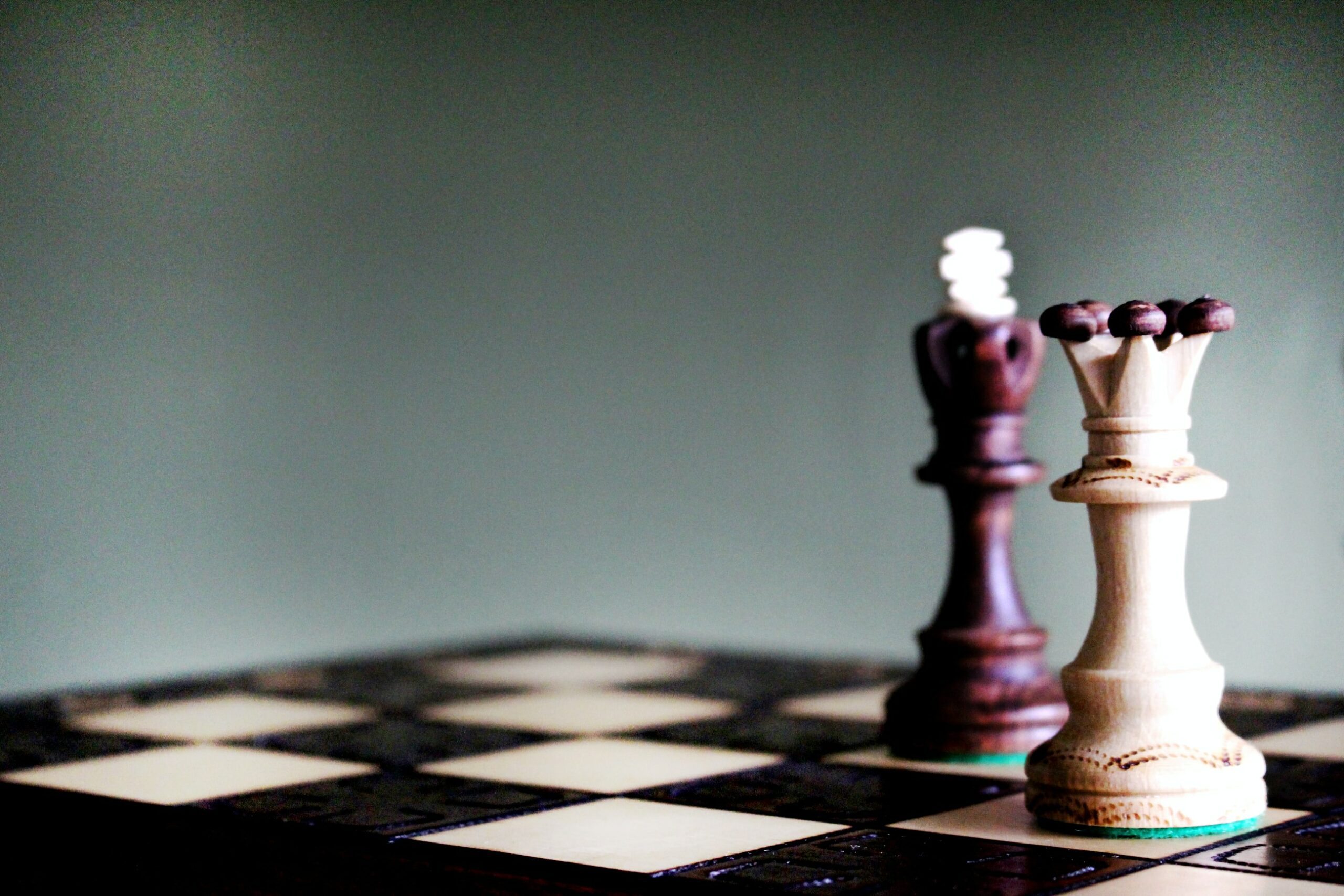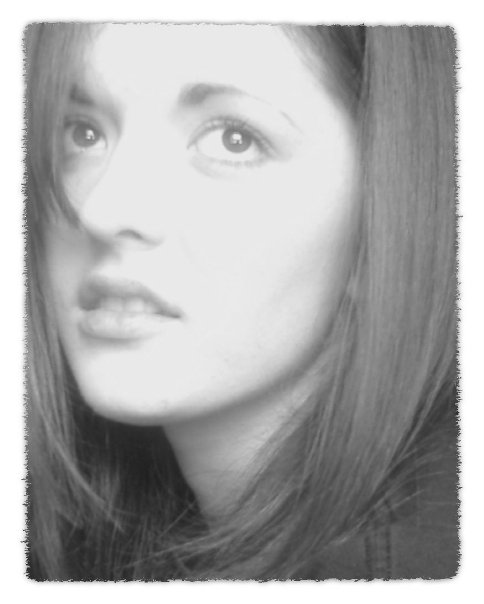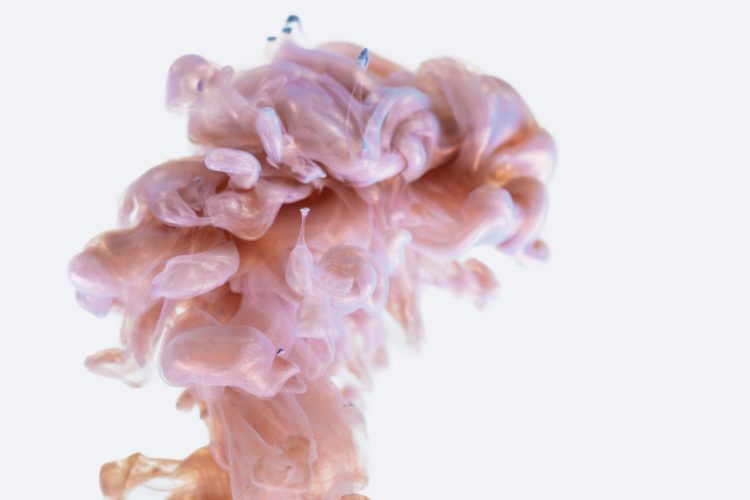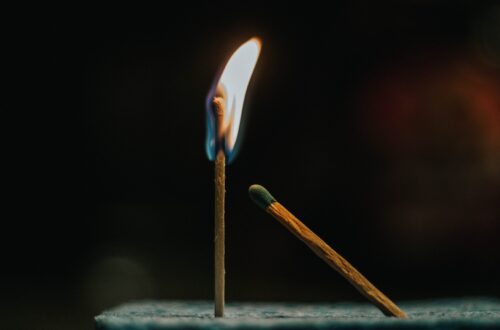
How Pornography Affected My Body Image (or, How Porn is Like Glitter)
Over the years, many women have asked me how pornography affected my body image. For the longest time, I told them it didn’t.
I was exposed to pornography at the age of 13, a freshman in high school. Can we all just agree that 13 is already awkward, clumsy, and painful no matter who you are or what you’ve been exposed to? My days were spent admiring the cheerleaders and wondering how they managed their perfect makeup and pin-straight hair.
(True story: I didn’t even know hair straighteners existed until I graduated high school and then I had a friend come over and spend over an hour straightening my thick, wavy-curly hair. It immediately frizzed in the summer humidity.)
When I first started sharing my story of being a Christian woman who struggled with pornography, women would ask me to address body image issues caused by pornography. To be honest, I felt bad because I felt like I didn’t have any. My body image issues were caused by the actual people in my environment and influenced a bit by toxic purity culture.
If anything, pornography felt like an escape from body image issues.
This is an aspect of pornography use we don’t often discuss, and let me just say, for those of you who are concerned about triggers:
Trigger Warning.
In almost every pornography video, the woman’s entire body is visible- from head to toe. Some videos are shot from an outside perspective while others are shot from the man’s perspective. A video shot from the woman’s perspective would be rare, if not unheard of altogether.
So when men watch pornography, they can envision themself as the man because you can’t see the man. But when a woman watches pornography, it’s not filmed from her perspective. It’s a bit of an out-of-body experience, if you will. She can respond in many ways. One is to adopt the perspective of the man in the video (which can lead to a question about sexuality). Another is to imagine she is the woman in the video. This is tricky, because she can see the woman in the video. While the men’s faces are often not pictured, the woman’s face almost always is, along with the rest of her body.
Looking back, I think my way around this little roadblock was to find videos that had women who looked like me or at least close enough.
Turns out, the reason I didn’t think pornography affected my body image was because I believed I looked like a porn star.
Sure, I knew a lot of those women were fake, but the real ones looked like me so it was no leap to imagine myself being one of them.
In fact, when I was 17, I tried to become one of them.
Fast forward to my twenties. I was still single and in the best shape of my life. Occasionally I would get frustrated with my freckles or my curly hair, but I didn’t feel any body image issues I had could be attributed to pornography specifically. They were just the same old same old insecurities I had had since high school.
I believed I was desirable. Often I would say to myself, “All these guys don’t know what they’re missing.”
When I was 30, I spoke at a conference for pastors and Christian leaders and shared my story. One of the women in attendance came up to my book table afterward and said, “You’re beautiful. You totally could have been a porn star.” It felt like a compliment (and looking back, I realize that was an indicator of what I’m about to share).
I got married two years after that conference. I can still remember what I was wearing when I met my husband. I tried my best to be modest, mostly because I did NOT want to attract him. Truth be told, I wasn’t really interested in a relationship at that point. Even though I was doing my best to not draw any attention to… anywhere… he still noticed my body: freckles and all. Turns out, he loves freckles.
I’ve shared before that pornography affected our marriage in other ways, but I entered into our marriage with zero qualms about my body. Sometimes people will talk about how women like to have the lights off when they make love because they don’t like the vulnerability. That wasn’t the case for us.
Safe to say, I truly believed my body image had survived my pornography addiction unscathed.
Then, I had children.
Obviously, carrying and birthing two human beings takes its toll on your body. I had always had a slight fear of this because people had told me growing up, “You just wait, Jessica. You just wait until you have kids. Kids destroy your body and your dignity.”
(Sign me up for that high calling of motherhood…)
In the aftermath of the extremely traumatic birth of my first born, I developed a near hatred for my body. It had failed me.
Then, 19 months later, we had our second and while there was some redemption in her birth, my self-image plummeted.
I began struggling with bouts of depression tied to my weight as I struggled to lose the extra pounds. After my second baby, it felt like my muscles just stopped working. I couldn’t “Army crawl” and while I used to hike for miles and rock climb, a walk around the block turned my legs to jello. Working out just made me feel weak. A pelvic organ prolapse made even walking around uncomfortable. Standing on the scale made me feel inadequate, and my husband’s tendency to stare at me as I changed for bed became a nuisance.
Didn’t he understand how ugly I was?
I kept telling myself that if he met me now he wouldn’t have married me. That there is nothing he would have found desirable.
In a moment of clarity, I had to ask myself, where did this come from?
As I thought on that, I realized the answer is: because I don’t look like a porn star anymore.
Pornography, for years, formed my definition of what was attractive. I believed I could keep up with those women, so I never really felt unattractive. But now, my body no longer meets that standard. And I’m blown away by how much that has affected me.
Pornography affected my body image because I used it to define what was desirable.
I still believed that desire had to do with your body. Once my body changed, I noticed some lies creeping into my heart, life, and marriage. I began to doubt my husband’s love for me, his desire for me. Anything that remotely looked like rejection or disgust felt like a crushing weight. Couple that with our crazy life and chasing two toddlers every day and I suddenly understood all of those women who say they have a headache.
This is yet another example of how healing from pornography is a journey. If you’re struggling with pornography, right now you might feel like the only thing in the world that matters is finding a way to get the struggle to stop.
But I’m here to tell you, this journey is so much more than “stop watching pornography.” You can be years removed pornography and still find areas it has affected in your life.
Someone gifted us a towel set for our wedding and wrapped the towels, in a laundry basket, with a glitter bow. Even after hosing out the laundry basket and running the towels through several cycles of our washing machine, we still found glitter everywhere. We had no choice but to get rid of the towels and the laundry basket.
Perhaps I should have titled this blog post “Pornography is like glitter.” Because you will find its affects years from now in the most obscure places.
Here I am, years removed from the last time I watched pornography, still trying to uproot its hold in a new area of my life.
How am I healing from pornography’s affects?
I’ve done a few things to help heal my body image and free it from porn’s tentacular grip.
First, I’ve told my husband.
If you ever email me asking what your first step should be on your freedom journey from anything, my answer will always be “you need to tell somebody.” Freedom is meant to draw us into relationship and community. Ergo, you can’t pursue freedom and healing alone. In my own experience, I have found that some of the best ways to combat shame is to take your struggle to the person whose reaction you fear the most. Obviously there are exceptions in situations where someone is not safe, but in most cases the fear we carry is something we’ve conjured up ourselves.
So, in a moment of transparency, I told my husband that I’m really struggling to feel beautiful and desirable in this season. He has responded by being sure to share that he still finds me attractive and beautiful.
My healing response is to believe him.
This feeds right into the second important step I’ve taken in healing from pornography’s affects on my body image.
I’ve started to speak truth over my body.
This really hit home a few weeks ago when I was changing and my oldest daughter came into the room. She pointed at my abdomen, marked by stretch marks and a little extra pooch. “Mommy, what’s that?”
Without even thinking, I said, “Well, baby, that’s flab.”
She looked down at her belly, stuck it out, and grabbed a handful. Then proudly said, “This is my flab.”
For whatever reason, hearing her say it broke my heart. And it occured to me, “I wonder if this is how God feels when I talk about my body in such a way.”
See, God has some things to say about my body and how I’ve been made.
He says I am fearfully and wonderfully made (Psalm 139:14). He says my body is a temple of the Holy Spirit (1 Corinthians 6:19). He says I am his workmanship, his masterpiece (Ephesians 2:10). He says my body is meant to bring him glory (1 Corinthians 6:13).
And finding freedom from pornography means looking to God (and my husband) to define what is good, beautiful, cherished, and desirable, and kicking pornography and all of its unrealistic standards and definitions to the curb.




